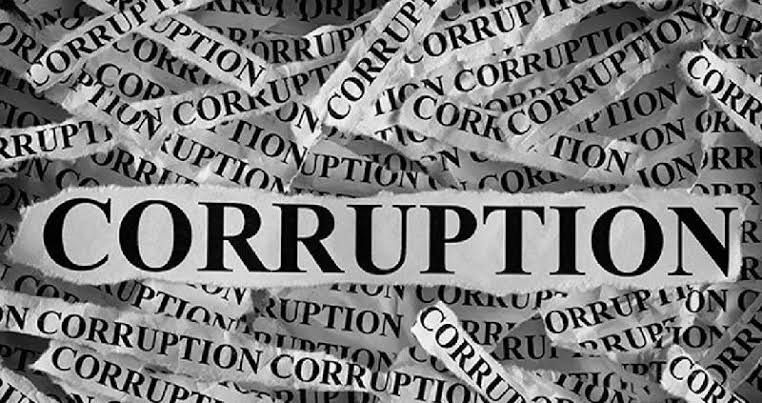Corruption and State Capture: A Dual Threat
Corruption and state capture have become systemic cancers, stalling Nigeria’s growth and eroding trust in governance. These twin evils, pervasive across all levels of government, have turned public service into private enterprise, leaving ordinary Nigerians to bear the brunt. From the inflation of capital project costs to judicial compromises, the effects are evident in the nation’s infrastructure deficit, economic stagnation, and worsening poverty.
In 2023, Nigeria ranked 145 out of 180 countries on Transparency International’s Corruption Perception Index, scoring a meagre 25 points. Former President Olusegun Obasanjo recently described the situation as “fatal” during the Chinua Achebe Memorial Lecture, emphasising that corruption has reached a level where it undermines democratic processes and institutional integrity. “The judiciary has been hijacked by private interests, making it impossible for justice to thrive,” he said.
Join our WhatsApp ChannelA Ground View of Lagos
In bustling Lagos, the effects of corruption and state capture are a lived reality. For Amaka Eze, a small business owner in Surulere, corruption is the reason her business struggles. “Every time I go to renew my business license, I’m told to pay extra ‘processing fees’ that aren’t on any official document,” she lamented. Amaka believes these under-the-table practices discourage small businesses from thriving. “The system is broken. We all know it, but who will fix it?”
Similarly, John Adedeji, a commercial driver from Oshodi, points to the poor state of roads as a direct result of corruption. “Government officials collect money for road repairs every year, but nothing changes. Look at our roads—they’re death traps. Where does the money go?”
In the heart of Lagos Island, community leader Ibrahim Alabi shares a broader perspective. “Corruption isn’t just about stealing money. It’s about the lack of accountability. Our leaders don’t feel the pain of the masses. They live in mansions while the rest of us struggle to find clean water.”
READ ALSO: Nigeria Loses $204 Million Annually To Corruption In Maritime Sector -Report
Christian Hannah, a civil servant in Yaba laments the corruption in the immigration office. “The corruption in various agency of the government is increasing daily. People in the immigration office deliberately hold peoples’ national passports for months and tell them to pay a fee around N25,000 to get their passport in weeks. While those who cannot afford waits for 3 months. such fees are illegal fees.”
Expert Views: Systemic Issues Require Systemic Solutions
Experts argue that the intertwining of corruption and state capture has made reforms almost impossible without significant structural changes. Dr. Kemi Adebayo, a political analyst, explains, “State capture isn’t just about money—it’s about power. When private interests control public institutions, the government no longer serves the people. This is why elections are rigged, and judiciary rulings favour the rich.”
Dr. Adebayo underscores the danger of normalising these practices. “When judges and politicians operate without accountability, the message is clear: crime pays if you’re in power. This is detrimental to our democracy.”
Professor Ahmed Sule, an economist, links corruption to Nigeria’s alarming poverty rate. “A country where lawmakers earn N21 million monthly while the minimum wage is N70,000 is inherently unjust. These disparities fuel public resentment and social unrest,” he noted. Sule insists that the first step to recovery is transparency in government spending and an empowered civil society to hold leaders accountable.
A Grim but Not Hopeless Future
Despite the grim realities, Nigerians remain resilient and hopeful. Amaka believes that change must start with the people. “We need to stop tolerating corruption at all levels. Even in our daily lives, we should refuse to participate in it,” she said.
For John, education is key. “Many Nigerians don’t know their rights. If people understand how the system works, they can challenge it,” he asserted.
Dr. Adebayo agrees but warns that education alone isn’t enough. “The international community must also play a role by sanctioning corrupt leaders and freezing stolen assets abroad. Domestic reform must meet international accountability.”
Breaking the Cycle
Nigeria’s battle with corruption and state capture is far from over, but there is a growing awareness of the problem. As Professor Sule aptly puts it, “The cure for corruption is transparency, and the antidote to state capture is an engaged citizenry.”
This is a call to action for every Nigerian—leaders and citizens alike—to envision and work toward a nation that serves all, not just a select few.
Emmanuel Ochayi is a journalist. He is a graduate of the University of Lagos, School of first choice and the nations pride. Emmanuel is keen on exploring writing angles in different areas, including Business, climate change, politics, Education, and others.
- Emmanuel Ochayihttps://www.primebusiness.africa/author/ochayi/
- Emmanuel Ochayihttps://www.primebusiness.africa/author/ochayi/
- Emmanuel Ochayihttps://www.primebusiness.africa/author/ochayi/
- Emmanuel Ochayihttps://www.primebusiness.africa/author/ochayi/

















Follow Us